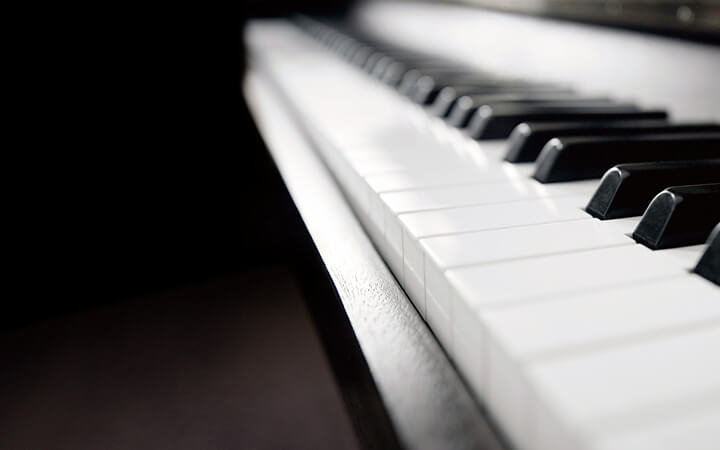
Which is better - weighted keys or unweighted keys?
Thinking of buying a keyboard and not sure whether to get one with weighted keys or unweighted keys?
Then read on my young padawan...
as the next few paragraphs will shed some light on the most common misperceptions about these two options and help you choose the instrument that will best suit you and your loved ones.
The first thing I should just clarify is that an electronic musical ‘keyboard’ with weighted keys is usually referred to as a digital piano rather than a keyboard. The term “keyboard” usually refers to instruments with unweighted keys.
So, in summary:
In terms of whether a digital piano (weighted keys) is something I would recommend over a keyboard (unweighted keys), it really boils down to personal preference.
For most students generally, I don't recommend one over the other, because in the early stages, students are mainly developing their timing, coordination, learning to find the keys on the keyboard, etc. (In this context, the term “keyboard” refers to the array of black and white keys on either a digital piano or keyboard).
So touch sensitivity, subtle technique, etc. tends not to become part of the picture for quite some time — despite what some piano teachers may tell you. Because of this, for most beginner students, unweighted keys are perfectly fine.
Each keyboard type (weighted / unweighted keys) has its own unique advantages, and in time, as you gradually become more advanced, each keyboard type will bring its own set of benefits to your playing.
For example, weighted keys are good for building up finger strength, which enhances your playing technique. Whereas unweighted keys are good for encouraging very precise playing which is beneficial in rhythmic / contemporary styles of music.
Not at all. Many people and families have a digital piano or acoustic piano that they might use to practice on for their piano teacher. And if also learning with Musiah, say on a MIDI keyboard, there is no harm whatsoever for them to play on unweighted keys. If anything, it will help their versatility.
The thing to understand about either keyboards or digital pianos is that most (but not all) have MIDI connectivity which means they can be connected to a computer, iPad or to other MIDI instruments. (‘MIDI’ stands for Musical Instrument Digital Interface).
As long as your keyboard or digital piano has at least 49 keys and is a MIDI instrument (meaning it has MIDI connectivity), then it is fully compatible for use with Musiah.
From my (and the Musiah application’s) point of view, it makes no difference whether you choose weighted or unweighted keys. It’s perfectly fine to choose whichever you prefer.
That said, as a very general guide, you will usually find that instruments with unweighted keys tend to be cheaper.
So there you have it folks — the question of weighted keys Vs unweighted keys has hopefully now been demystified for you.
When you have purchased your chosen MIDI instrument (be it a keyboard or a digital piano), if you’re looking for highly effective, fun, convenient and affordable piano lessons, I highly recommend taking our Musiah Piano Lessons 14 Day Free Trial.
And of course, if you have any questions about Musiah or keyboards suitable for use in our lessons, please feel free to contact me directly.
Thanks for reading,
Brendan Hogan L.Mus.A, A.Mus.A.
Piano Teacher & Musiah Inventor
Piano Lessons Or Keyboard Lessons – What's the difference?
The 3 Different Kinds Of Keyboard Lessons
Musiah App Overview
Why Musiah Is Better
How Long Does It Take To Learn Piano?
Online Piano lessons – Do They Work?
Piano Lessons For Adults
Piano Lessons For Kids
Piano Lessons For Beginners
Advanced Piano Lessons
Free Piano Lessons (on piano technique)
The Best Piano Method
Learning To Play Piano As An Adult – Why it's easier than you think!